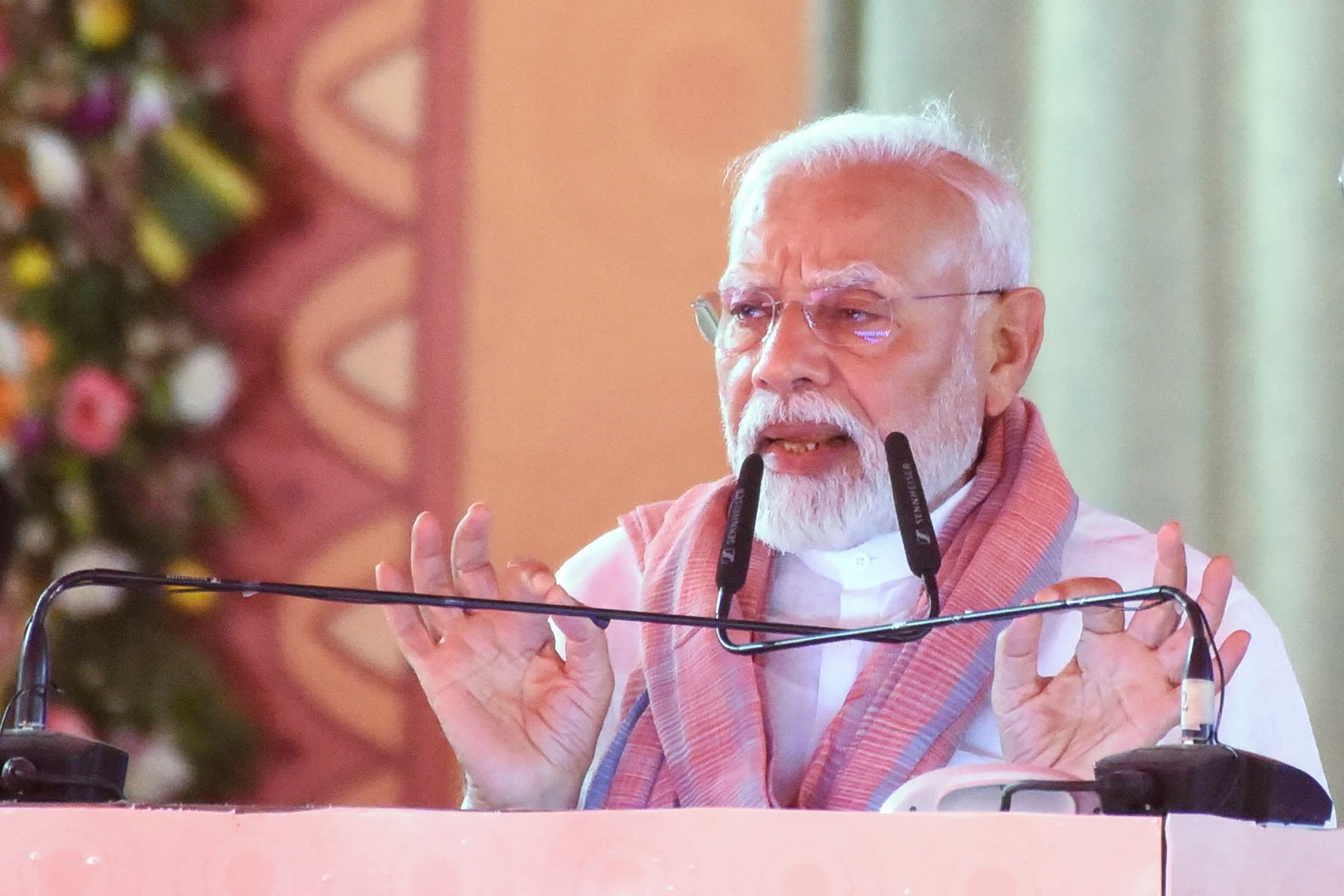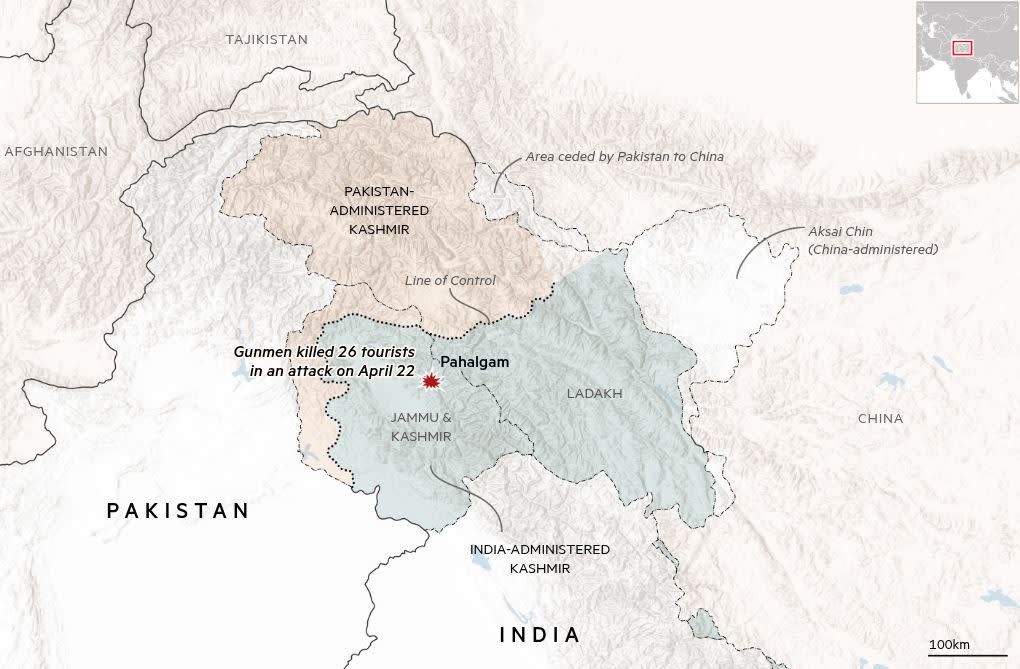Unlock the Editor’s Digest for free
Roula Khalaf, Editor of the FT, selects her favourite stories in this weekly newsletter.
Pakistan has closed its airspace to India’s airlines, said it would suspend a 1972 peace treaty with its larger neighbour, and warned that any diversion of shared river waters would be “considered an act of war”.
Islamabad’s moves against India on Thursday marked a sharp escalation of the dispute between the two nuclear-armed nations over an attack that killed 26 tourists in the disputed northern region of Kashmir.
India had already downgraded diplomatic relations with Pakistan and suspended its participation in a crucial cross-border water treaty over the attack. On Thursday, India’s Prime Minister Narendra Modi vowed to “identify, track and punish” the backers of the gunmen responsible for an atrocity that shocked Indians and fanned fears of a conflict with Pakistan.
Pakistan has denied any involvement in the attack in Pahalgam, a tourist destination in the Indian-controlled territory of Jammu and Kashmir, and on Thursday levelled India’s accusations of supporting terrorism back at Modi’s government.
The Islamic republic’s National Security Committee denounced India’s suspension of the 1960 treaty under which the two countries share water from the Indus river system.
“Any attempt to stop or divert the flow of water belonging to Pakistan as per the Indus Waters Treaty . . . will be considered as an act of war and responded [to] with full force across the complete spectrum of national power,” the committee said in a press release after meeting.
It said Pakistan would suspend all bilateral treaties with its neighbour, including a 1972 peace accord, “till India desists from . . . fomenting terrorism inside Pakistan [and] transnational killings”. The remarks were an apparent reference to Indian agents’ alleged involvement in the killing of separatist Sikh activists in Canada and Pakistan.
The committee also said Pakistan would hold “in abeyance” the Simla Agreement, which has governed relations between the two countries since it was signed after their 1971 war. The pact’s provisions included establishing the “Line of Control” along which they face off in Kashmir.
Michael Kugelman, a Washington-based South Asia analyst, said the Indus Water Treaty and Simla accord had served as “safety nets” ensuring a baseline of co-operation and communication at times of high tension between Pakistan and India. “The relationship risks entering uncharted territory,” Kugelman said.
Police in Jammu and Kashmir said on Thursday that two of the three suspects in the Pahalgam massacre were Pakistani nationals, identifying them as part of a militant group behind one of India’s worst mass murders of civilians.
In a “Wanted” notice published online, the police described the men as “LeT terrorists”, a reference to Pakistan-based Lashkar-e-Tayyaba, which was responsible for the killing of 175 people in Mumbai in 2008.

Speaking in the Indian state of Bihar on Thursday, Modi said his government would pursue “to the ends of the earth” the people responsible for an attack that was the deadliest on Indians in Kashmir since a 2019 suicide bombing that killed 40 paramilitaries.
“I say to the whole world, India will identify, track and punish every terrorist and their backers,” Modi said. “India’s spirit will never be broken by terrorism. Pahalgam will not go unpunished.”
India has ordered the closing of its only border crossing with Pakistan, the expulsion of military advisers from Pakistan’s diplomatic missions in India, the withdrawal of its own advisers from Pakistan, and a reduction in the number of diplomats in each country to 30 from 55.
Its suspension of participation in the Indus Waters Treaty was an unprecedented measure that could be deeply damaging to farming in Pakistan at the start of the sowing season of a country mired in a deep economic crisis.
Ishaq Dar, Pakistan’s foreign minister, told local television on Wednesday that Islamabad was not involved in the Pahalgam attack and that “no evidence” had been provided to show otherwise. Pakistan would retaliate against any Indian action over the attack, Dar said.
“There will be a tit-for-tat reply, and not an iota less than they have done,” he said in an interview with Dunya News.
The diplomatic crisis threatens Pakistan’s fragile economic recovery after two years of stagflation and surging power costs have shredded household finances and badly affected industries.
The Indus Waters Treaty is vital to Pakistan because it guarantees access to the three western rivers of the Indus basin — its main source of water for agriculture, power, and daily life.
Farooq Tariq, a farmer and activist from Toba Tek Singh in central Punjab, said any disruption to water supply could have a “devastating impact on the agriculture of Pakistan”. “[Farmers in Sindh and Punjab] are in much more danger of losing water while there is already . . . water scarcity,” he said.



